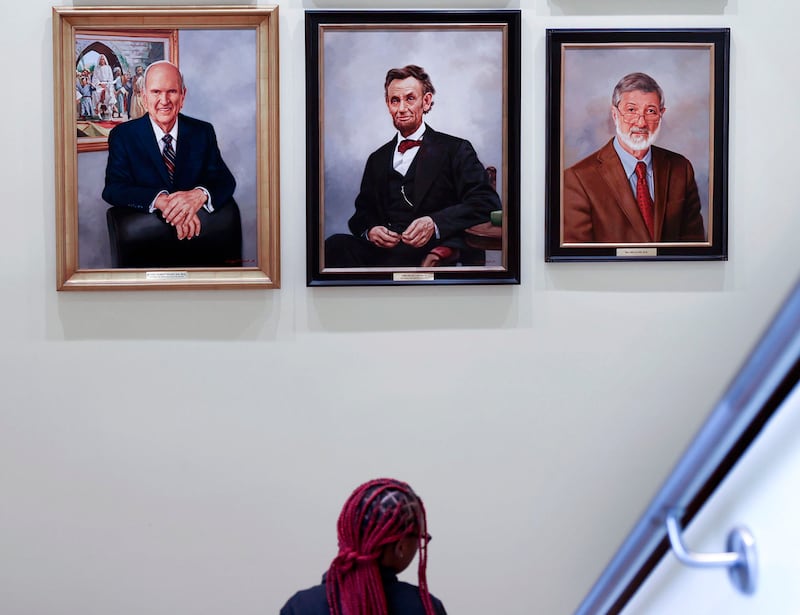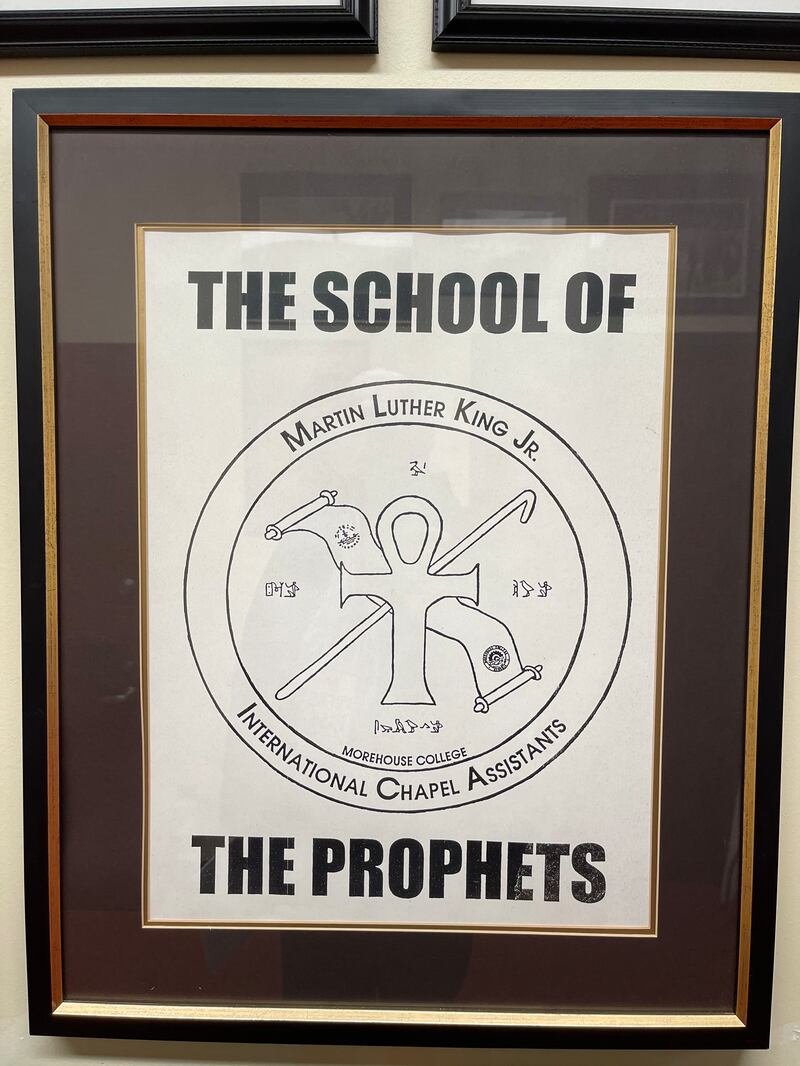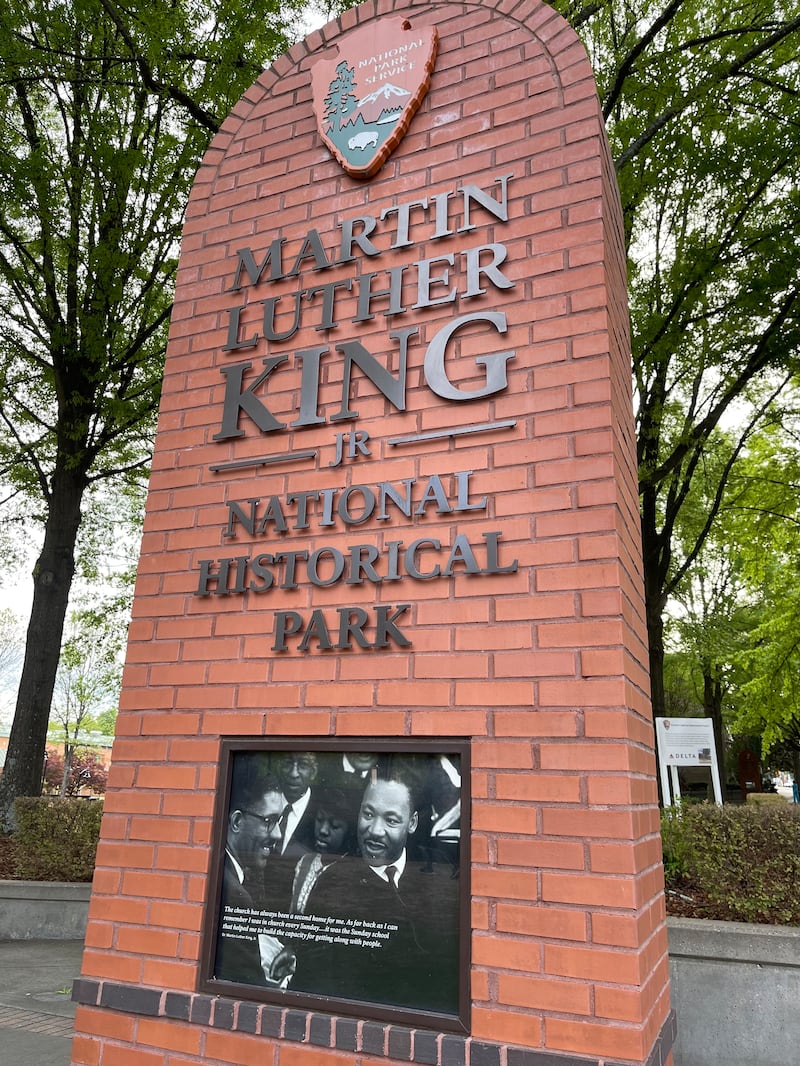This article was first published in the ChurchBeat newsletter. Sign up to receive the newsletter in your inbox each Wednesday night.
When The Church of Jesus Christ of Latter-day Saints sends a friend-of-the-court brief to the U.S. Supreme Court, it’s a signal that church leaders believe a case before the court could impact the church or the religious beliefs and practices of its members.
On Tuesday, the court heard arguments by lawyers in a case about religion and the workplace that elicited a joint letter from the Church of Jesus Christ and major Catholic, Jewish and evangelical groups.
The brief raised concerns about, among other things, the rights of Latter-day Saint employees to wear their temple garments at work or to ask for reasonable work schedule accommodations for Sabbath observance.
In their joint amicus brief, the religious leaders took sides with the late civil rights lawyer and Supreme Court Justice Thurgood Marshall against a 1977 Supreme Court decision.
“During all this time, (that decision) has operated as a kind of illicit tax on certain religious beliefs, especially the beliefs and practices of religious minorities,” the brief said.
Marshall was on the court in 1977 and dissented on that case about an airline that fired an employee for insubordination when he refused to work on Saturdays, his Sabbath day.
Marshall said then that the ruling was poorly worded and made it too easy for employers to deny religious-based requests by workers. The 1977 ruling said that an employer could legally turn down a request for religious accommodation as an “undue hardship” on the company if it could show that accommodating the request would result in a “de minimis,” or trifling, cost.
That wording, “de minimis,” was a departure from the terms used by Congress in the Civil Rights Act and a subsequent amendment.
Time has proved Marshall was right about the poor wording, lawyers from the Salt Lake City firm Kirton McConkie wrote in their brief on behalf of the religious leaders.
“That interpretation was wrong on the day Hardison was decided,” the brief said.
In fact, both sides agreed that “de minimis” is poor wording on Tuesday, when lawyers argued the new case before the court about a postal worker asking for an accommodation to not work on the Sabbath, according to a story by my colleague, Kelsey Dallas.
The church brief asked the Supreme Court to overturn the 1977 ruling. It also asks the court to replace “de minimis” with a standard that already exists in U.S. law in the Americans With Disabilities Act.
The ADA’s standard for an accommodation defines an “undue hardship” as something that imposes “significant difficulty or expense” on an employer.
The churches’ brief argued that the “de minimis” standard that covers workplace accommodations for religion has produced indefensible court rulings for 46 years.
“(The 1977 ruling) has injured religious Americans for more than four decades,” it said. “Federal and state judicial reports are littered with cases where the lax ‘de minimis cost’ standard has put honest men and women in the intolerable position of choosing between their jobs and their faith.”
For example, a court ruled in 2004 that it would be an undue hardship on Costco “to allow a single religiously-inspired facial piercing in violation of the employer’s dress-and-grooming policy.”
The difference between the standards for ADA accommodations and religious accommodations is also confusing, the brief said.
“If a Seventh-day Adventist asks for Saturday off to worship and a recovering drug addict asks for Saturday off for substance abuse treatment, as things now stand the employer must accommodate the addict but could terminate the Adventist,” the brief said. “That makes no sense when Congress framed the employer’s duty in the same words.”
The brief was filed jointly by the:
- The Church of Jesus Christ of Latter-day Saints.
- Baptist Joint Committee for Religious Liberty.
- U.S. Conference of Catholic Bishops.
- National Association of Evangelicals.
- The Ethics and Religious Liberty Commission of the Southern Baptist Convention.
- The Anti-Defamation League.
“We are united in submitting this brief in support of petitioner’s crucial effort to restore robust legal protection for the religious freedom of all employees,” they said in the brief, adding, “Americans shouldn’t have to choose between their jobs and their faith.”
The brief also included some interesting data. It said that a disproportionately large share of religious accommodation cases are filed by religious minorities.
Seventh-day Adventists file 21.5% of religious accommodation claims, while representing 0.5% percent of the population.
Muslims file 18.6% of religious accommodation claims, while representing 0.9% percent of the population.
Jehovah’s Witnesses file 4.9% of religious accommodation claims, while representing 0.8% percent of the population.
Other Groups (including Jews, Hebrew Israelites, Rastafarians, Sikhs and African religions) filed 13.7% of religious accommodation claims, while all together representing about 3% of the population.
“When employers encounter unique religious needs, it can be easier to terminate than accommodate — a calculated denial of religious freedom that (the 1977 ruling) allows. ... As religious employees make up a dwindling share of America’s workforce, discrimination against them is likely to worsen unless Hardison’s perverse incentives are removed.”
You can read the full brief here.
My recent stories
What is compensated emancipation, and why did Joseph Smith campaign for it? (April 13)
Historically Black college honors President Nelson with first Gandhi-King-Mandela Peace Prize (April 13)
About the church
The church donated $8.7M to the Red Cross.
See what Elder Ronald A. Rasband did on a church assignment in France. And in Germany.
See what Elder Dieter F. Uchtdorf said when he visited English and Arabic branches in Cairo, Egypt.
The San Diego California Temple will close in July for extensive renovations.
The First Presidency announced dedication and open house dates set for the Okinawa Japan Temple.
What I’m reading
It turns out one of my favorite baseball writers is a native Utahn. And now Jay Jaffe has written about Salt Lake City’s bid for an expansion team if/when Major League Baseball decides to add two more clubs. His piece quotes the Deseret News, calls Utah a great contender and describes “an almost unfathomable obstacle.”
One researcher says there is a “seismic political shift” happening among young Latter-day Saints, who are less Republican.
Read about the University of Michigan student who is serving in a bishopric while playing college football.
Here’s an interesting perspective on the priest-penitent privilege, or clergy exemption, from an attorney who says that eliminating it can have unintended consequences.
April 15 was Jackie Robinson Day, commemorating the day in 1947 when Robinson broke baseball’s color barrier. Every player in Major League Baseball wore the No. 42, the number he wore when he played, to honor him. One writer argued well that Robinson was an even better baseball player than most realize.
Behind the scenes









